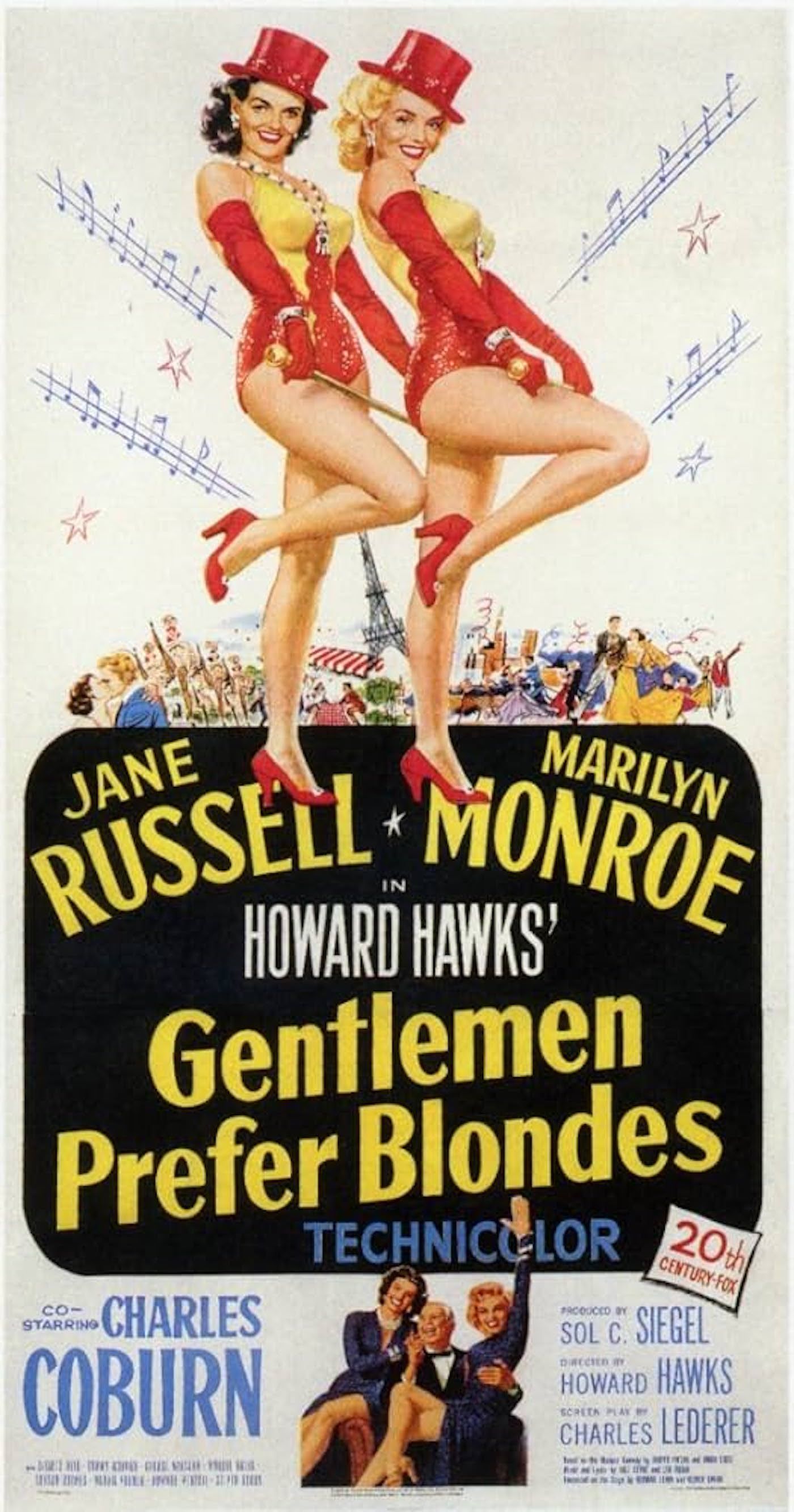- Marilyn Monroe’s relationships and political connections were closely monitored by the FBI due to her association with playwright Arthur Miller, who was under investigation for communist ties.
- Despite pressure to end her relationship with Miller, Monroe stood by him during the House Un-American Activities Committee investigation and faced scrutiny from the FBI.
- The FBI files on Monroe revealed suspicions about her company’s alleged communist affiliations and her friendship with political activist Frederick Vanderbilt Field, although no concrete evidence was found to support these claims.
“Clothes, fame, money, a future, all the publicity I could dream of,” once said Marilyn Monroe. As someone who was once the world’s biggest movie star, Monroe symbolized everything a young woman in the ’50s and ’60s desired: sex appeal, men falling at your feet, fame, and flowing wealth. It’s well known that she was the top-billed actress of her time and inspired America’s era of sexual revolution. Still, the blonde bombshell’s life was predominantly crowded with much more sadness than stable happiness. And this painful way of living had everything to do with the judgmental society she was entrapped in.
Like any woman, Marilyn Monroe sought real love in her life, although she struggled to find it throughout her three marriages. As if she hadn’t already suffered enough during her childhood, even her choices in husbands were scrutinized under a tight megascope. It was only when the larger-than-life sex symbol began an affair with American playwright Arthur Miller, that the U.S. government started to question her political views. Under the Freedom of Information Act in the 1980s, a 104-page FBI file that closely monitored the famed star’s movements was released to the public and then again reprocessed in 2012 which were posted in the FBI Records: The Vault. But what exactly did these files entail about the beloved Hollywood icon? Why did the FBI choose Monroe as a person of interest?

Showgirls Lorelei Lee and Dorothy Shaw travel to Paris, pursued by a private detective hired by the suspicious father of Lorelei’s fiancé, as well as a rich, enamored old man and many other doting admirers.
Why Did the Government Investigate Marilyn Monroe and Arthur Miller?
Born Norma Jeane Mortenson in 1926, Marilyn Monroe was married three times within her short life span: to next-door neighbor, Jim Dougherty from 1942 to 1946, to baseball pro Joe DiMaggio from 1954 to 1955, then to playwright Arthur Miller from 1956 to 1961. The screen star met the 20th-century screenwriter when she was just 30 years old through mutual director Elia Kazan. They met on the set of 1951’s As Young As You Feel when they were both still married to another spouse. According to Esquire, the couple only started a love affair after they split from their marriages, reconnecting in 1955, and soon they became a media frenzy.
The Gentlemen Prefer Blondes star and Miller got hitched on June 29, 1956, however, it was well before their wedding that the FBI stepped into the picture. As reported by Teen Vogue, Miller was being investigated by the U.S. government for being politically involved with communist ties. This was during the Cold War times in America. The government was cracking down on who was a loyal patriot or potential Communist traitor, especially figures in the public eye. The American playwright was very open with his opposed feelings towards fascism (he wrote a play called The Crucible in 1953 that spoke of an illusion to the accusations of “witchcraft”), nevertheless, the FBI set their eyes on Miller when they uncovered his interactive footprints with the Communist Party’s cultural and social front groups, as per Teen Vouge. It was only a matter of time before the government started to suspect Miller’s famed girlfriend of the same crimes.
In 1956, the House Un-American Activities Committee (HUAC) commenced its investigation of Arthur Miller and subpoenaed the writer. During the interrogation process, Marilyn Monroe stuck to her boyfriend’s side throughout its entirety, supporting him as much as she could. She was at the height of her career, already having starred in successful films such as The Seven Year Itch and How To Marry a Millionaire. Vocalizing her political opinions could have turned her career upside down in a pinch. As per Esquire, the actress was advised by studies to end her romantic relationship with Arthur Miller as it most likely would degrade her reputation, but she refused to give in to the pressure. It was quite evident Monroe was in love with Miller, confessing her affection in love letters seen in Fragments: Poems, Intimate Notes, Letters. During the trial, a gossip columnist noted Monroe as “the darling of the left wing intelligentsia, several of whom are listed as Red fronters.”
Also at this time, the cultural icon was suffering from depression and pill drug abuse, and matters turned more sour when Hollywood’s golden girl was accused of being intimately close to John F. Kennedy — loosely depicted in Netflix’s Blonde. The federal bureau couldn’t keep its sights off Marilyn Monroe, and soon, they opened a file on the star which followed her life for seven years, from 1955 until her death on August 5, 1962.
In May 1957, Arthur Miller was found guilty of contempt of Congress. Teen Vogue recounts that the American playwright was sentenced to a month in jail or to pay a $500 fine. His conviction was later appealed, but Miller was stripped of his US passport and blacklisted by Hollywood. Despite the outcome of the trial, the FBI kept monitoring Monroe’s life. The files released in the FBI Records: The Vault shed light on the extent of their obtrusive investigations. As reported in The Gothamist, the first anonymous tip-off to what the FBI files noted involved their suspicion of her company, Marilyn Monroe Productions, being ‘filled with communists.’ The FBI believed the money within the company was being used to aid communist activities with Arthur Miller at the lead of these transactions — this clue was revealed to have been called into the New York Daily News.
The files additionally expressed concern regarding Monroe’s friendship with Frederick Vanderbilt Field. As stated by Esquire, Filed was disowned by the wealthy Vanderbilt family and was pegged to be a political activist and writer, living in exile in Mexico, with affiliations of being a member of the Communist Party. The file details that Monroe’s therapist became worried about the actress’s time spent with the exiled activist which created dismay among her inner circle.
In defense of Monroe, many publications can now verify that it was common for actresses, at the time, to find themselves in situations where they must socialize with fellow celebrities like musicians or writers who just happened to be members of the Communist Party USA — this was particularly true after the events of World War II. But during the time of left-wing and right-wing tensions, there’s no doubt that the FBI cleverly utilized famed stars like Monroe to scare off others who might be hiding their real political views.
As the FBI files now prove, the bureau could never provide concrete evidence to frame Hollywood’s ’60s icon for their accusations. In July 1962, the file plainly states: “The subject’s views are very positively and concisely leftist; however, if she is being actively used by the Communist Party, it is not general knowledge among those working with the movement in Los Angeles.” Fans of the blonde bombshell have studied the many conspiracy theories regarding the star’s fatal “suicide” over the decades. Even the files show that the U.S. government knew about the theories behind her death yet didn’t take any action to investigate the claims. Author of The Marilyn Diaries Charles Casillo commented in a podcast titled “The Killing of Marilyn Monroe” that it was common knowledge Monroe “was a very, very deeply unhappy person” up until her death. It’s only right to honor the treasured star today by remembering her one-of-a-kind talent, warm heart, and efforts to fight for women’s rights to become independent within the film industry.
Gentlemen Prefer Blondes is available to stream on Hulu in the U.S.

